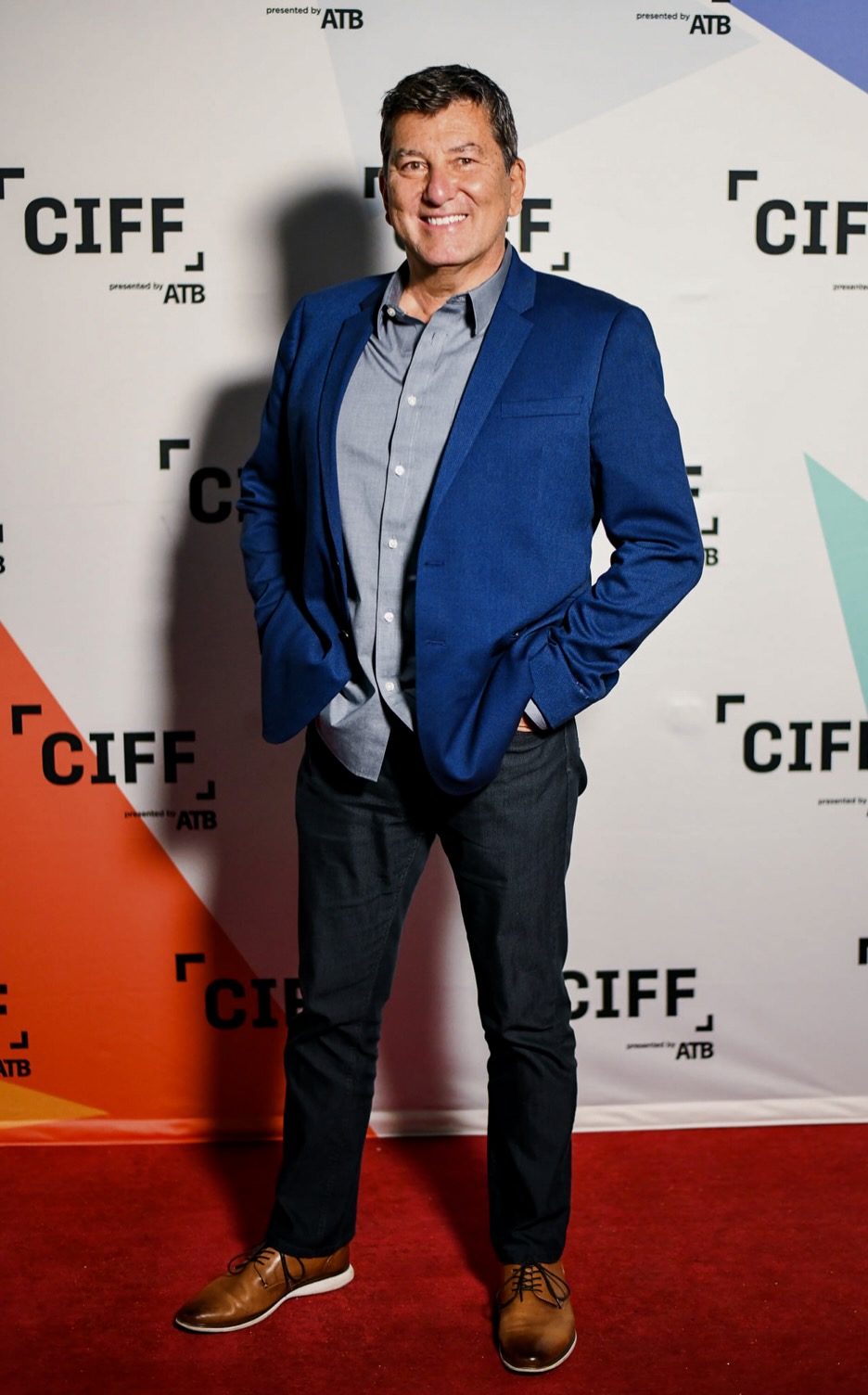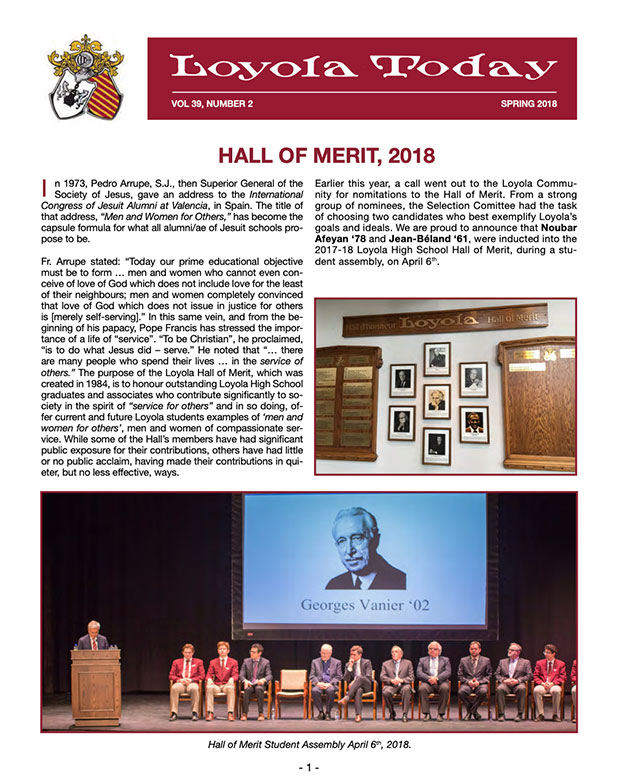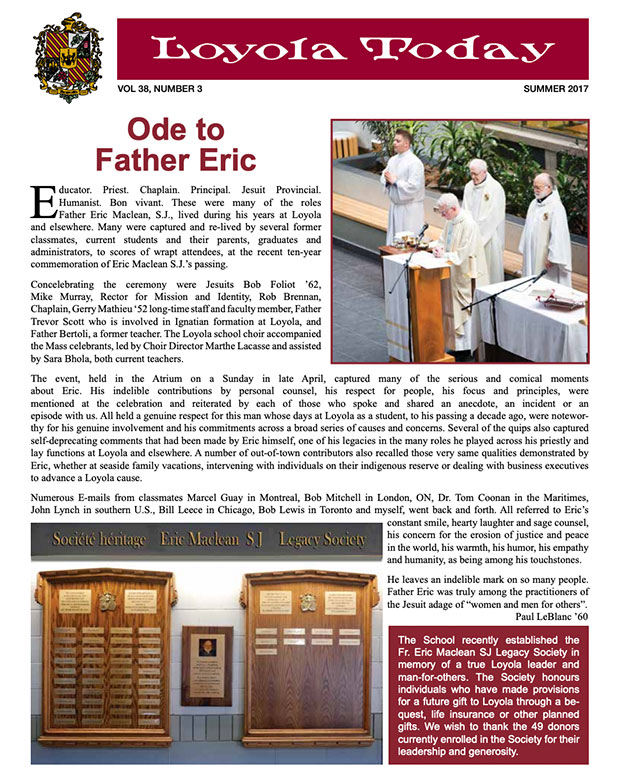Whole Person Stories
By Andrés Canella '02
Originally published in the Winter/Spring 2022 edition of the Loyola Today
From his early days as a camera operator with Clint Eastwood to his latest projects as director of feature films, Stephen Campanelli’s passion for film is measured on the impact it has on others.
His latest film, Drinkwater, began its festival circuit run at the end of 2021, premiering at the Calgary International Film Festival (CIFF) and winning audience awards in Calgary, Whistler and Hamilton. A Canadian comedy starring Daniel Doheny (Alex Strangelove) and Eric McCormack (Will & Grace), the film offered much-needed relief after nearly two years of pandemic restrictions.
“When you hear a hundred people laughing at the same time, it’s very infectious,” says Campanelli.
Shortly after its premiere in Calgary, he recounts how an ER nurse coping with the tragic situation in hospitals during the COVID-19 pandemic thanked him for giving her the opportunity to forget about her reality for two hours and immerse herself in the film. “Making movies can appear to be very materialistic, but when you hear a story like that, you measure their true impact.”
Campanelli notes this exchange as the impetus for him and his producers to offer a free screening of the film, in partnership with Tim Hortons and Cineplex, for all healthcare professionals across the country. For him, this is a way to “give back” and thank healthcare workers for being on the frontlines of the pandemic.
Film has as much of an ability to impact audiences as it does the filmmaker. Campanelli’s best-known directorial work is Indian Horse, the 2017 adaptation of Richard Wagamese’s novel. The story of a young Ojibway boy who is forced to endure loss of culture and the many traumas inflicted by the residential school system.
“The impact of the book was mind-blowing. I was so angry and so ashamed of being a Canadian and not knowing this had happened in our country.”
After long talks with the author and his family, and his own desire to share this story with the world, Campanelli was recommended by legendary Québécois film producer Roger Frappier to direct the film. While Richard Wagamese would pass away before its release, Campanelli claims “there’s not one ounce of me in that film - it’s all Richard.”
Sharing stories, particularly ones that reveal hard truths about a nation’s history, is at the core of impactful filmmaking. Campanelli remembers working with Clint Eastwood on his 2016 film Letters From Iwo Jima and speaking with Japanese students who were ignorant of this important part of their own nation’s history.
He is grateful that Indian Horse is helping reshape narratives about Canada and Indigenous Peoples, particularly if it has an impact on the education of youth. It has become part of the history curriculum at Loyola.
Campanelli looks back fondly at his years at Loyola, and has no doubt it will graduate several future filmmakers. “My dream was to meet Clint Eastwood… I never imagined I would work with him.” From humble beginnings shuffling tape recorders around the school as part of the AV department to realizing his dreams, he had these words to share with media students when visiting Loyola a few years ago: “dream bigger.”
 |
Stephen Campanelli '76 Stephen grew up in N.D.G. a few blocks from Loyola and graduated from Loyola in 1976. He attended Concordia’s film production program where after shooting several shorts he won first prize at the Canadian Student Film Festival. His first professional project was working on Meatballs 3, which launched years of hard work as a camera operator, building up a reputation that led him to work alongside his childhood idol Clint Eastwood on several films, starting with The Bridges of Madison County in 1995. He has since directed four feature films and has over 110 credits as camera operator. |
Photo credit(s): Claire Folger
Loyola Today
- Fall 2018

- Spring 2018

- Winter 2017

- Summer 2017

- Spring 2017

- Summer 2016






